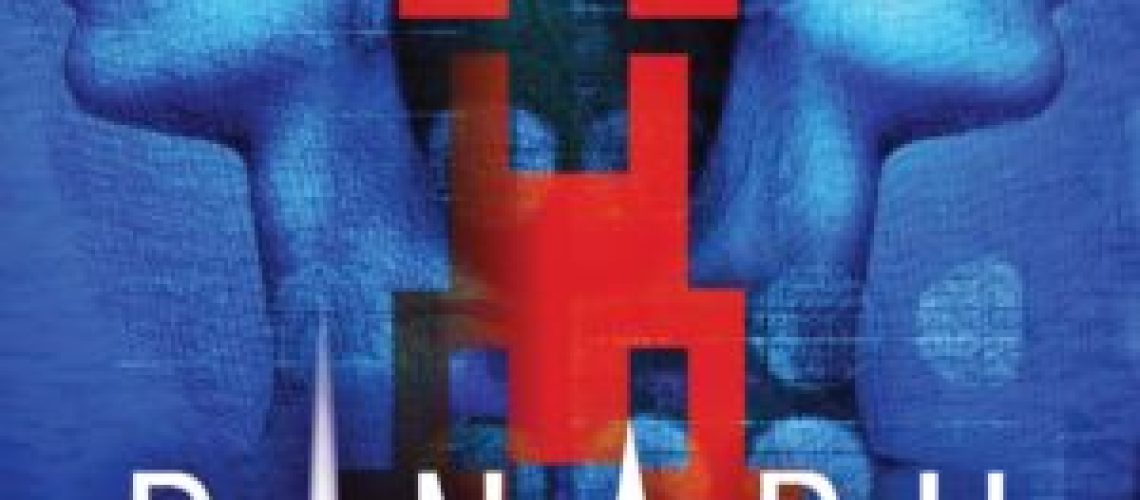Several years after the events of Gemsigns (see my review here at Skiffy and Fanty), the integration of Gems into society has continued. The violent spasm of reaction to Gems in the form of the godgangs has given way, some years later, to society seeking methods to harness the talents the Gems have in modern society. It hasn’t always been smooth, or easy, but society and people have started to move on and grapple with the consequences of the aftermath of the fateful Conference and the Declaration arising from it.
As in Gemsigns, however, both Aryel Morningstar, leader of the Gems, and the industrialist Zavcka Klist find their paths crossing. However, rather than being overt adversaries, Klist has a proposition for Morningstar, an offer of a collaboration of talents and skills. Klist’s proposition is to use the power of a certain Gem to explore the infotech technologies that had been abandoned in the wake of the Syndrome over a century ago. That Gem, Harran, with extraordinary power to connect to computers on a fundamental level, might be just the Gem to lead the effort into exploring infotech, and safely. However, when delving into computers, and ancient records, sometimes dark and long forgotten secrets are discovered. Secrets of the past of Aryel Morningstar … and secrets of Zavcka Klist as well.

Binary is the second novel from Stephanie Saulter.
Even more so than Gemsigns, the novel further puts the two characters of Aryel and Zavcka into focus, into conflict, and into reflection and refraction. While Gemsigns used Eli Walker as an intermediary and center point between the two characters as its ostensible protagonist, Binary is much more sure-footed in putting the two characters front and center. While there is a variety of viewpoints besides the two main characters, including Eli, the novel rightly knows where the real narrative juice lies in the story and mines it accordingly.
The changes in society and the development of how the Gems are becoming part of mainstream life are well thought out and fascinating. Too, many of the characters from the first novel have grown and developed, relationships have changed and developed and the world has grown. Binary also looks backward, drawing us into events and backstory from before the events of Gemsigns, giving us additional perspective on how some of the characters came to be in the forms seen in Gemsigns, and now, in Binary. The novel also does expertly, again, show the two sided nature of Gems — not only their fabulous abilities, but the real challenges and disabilities many of them have to deal with on a day to day basis.
The second novel uses a different sort of structure than the first. The first novel is very much a political argument between various factions trying to determine the future of Gems. Those Ethical problems, while settled in the time frame of Binary, are not solved. Binary goes for a more mystery and espionage style plot. This structure is a fascinating change from the first novel, which had some procedural elements, but did not have them front and center as they are in Binary. The novel is still firmly in the literary end of the science fiction spectrum, and is far more interested in character than the turning of gears of plot. How characters react to events and revelations, and the depths of character by the reveals of backstory still dominate the concerns of Saulter’s writing. I do think that the author might’ve tightened up some of the details of the corporate espionage a bit to make this an even more well rounded novel.
While Binary seems to ostensibly be written to stand on its own, the novel really only works as a continuation of the story started in Gemsigns. The basic assumptions and background and worldbuilding of Gemsigns applies here, and the novel is a much harder slog for readers who have not read Gemsigns. Further, there are interstitial backstory passages that tie into the interstitial backstory passages in Gemsigns, completing it and giving a whole complete story between the two volumes.
Binary aptly and ably continues and expands on the tradition of character-focused science fiction begun in Gemsigns. Second novels are difficult second acts, but Saulter has managed the trick here, and I look forward to continue to explore her writing and how it grows and develops.








One Response
A perfect sequel. I love this series so, so much. I can’t wait for the third book.